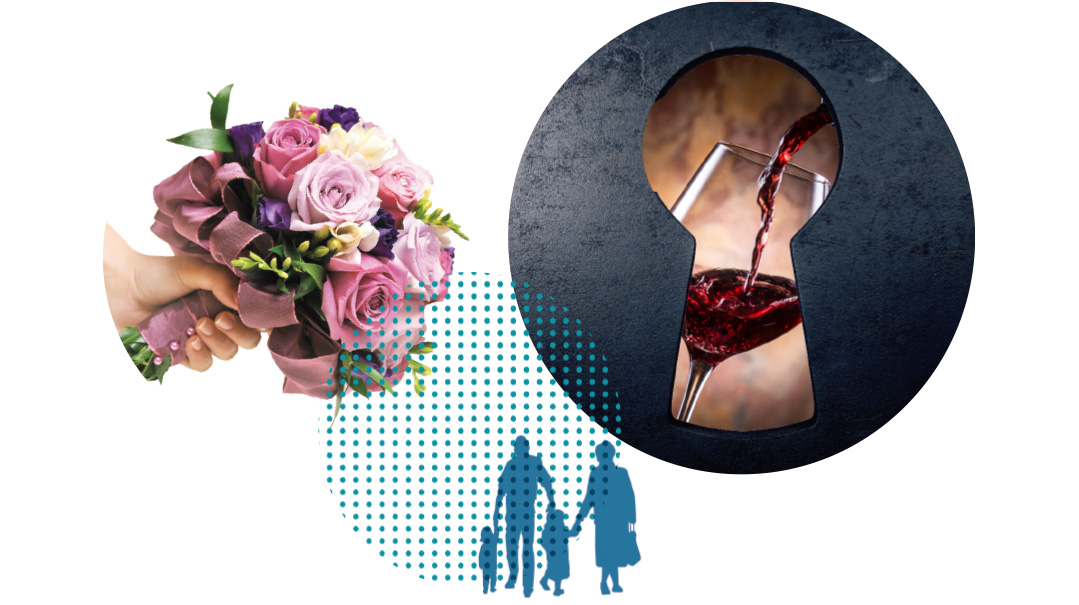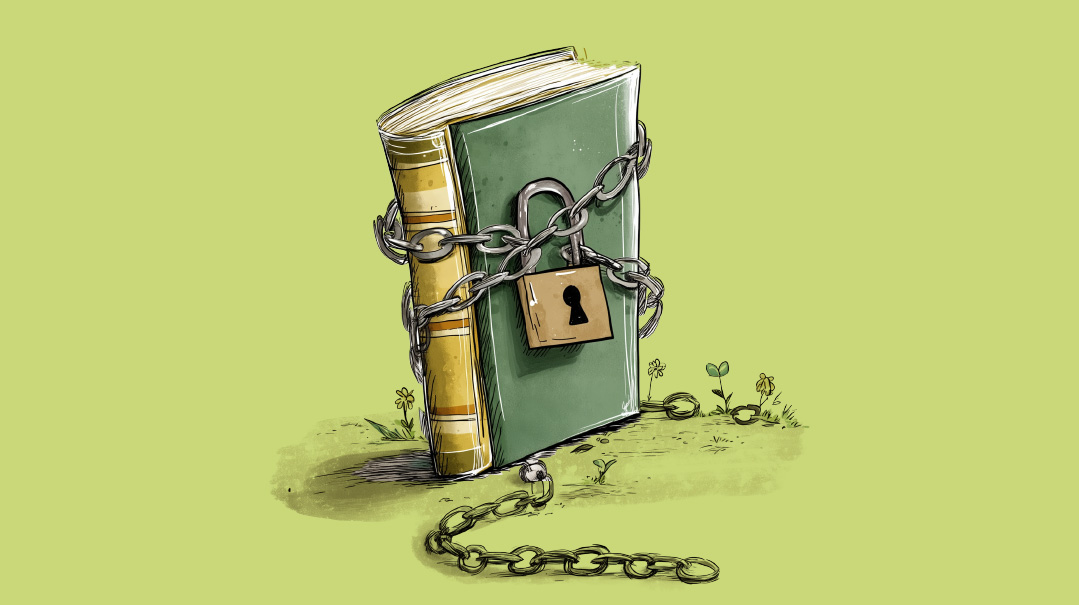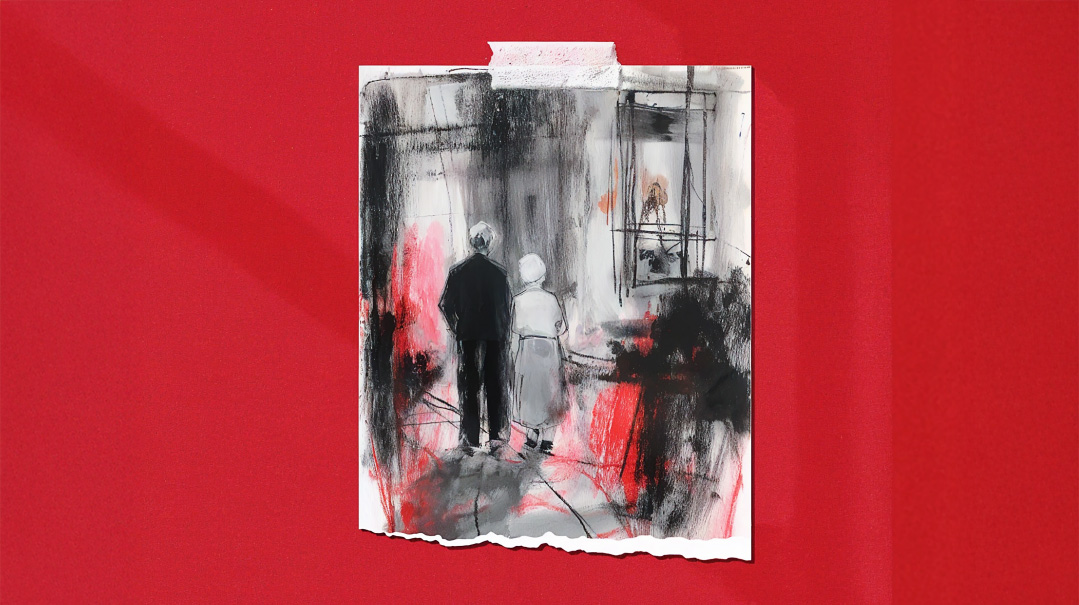Family First Inbox: Issue 829

“A woman isn’t someone who is married; womanhood has nothing to do with marital status”

Assumptions Hurt [The Conversation Continues / Issue 827]
Thank you, Chaya Gitson, for being our voice and expressing the reality of those of us who weren’t supported in kollel. My circumstances don’t entirely match Chaya’s, but I also had parents who couldn’t afford to support their married children, and they were very honest with me about it before I got married. And I also wanted to build a home of Torah, so I went into this with open eyes.
But as Chaya wrote, people just assume that everyone in kollel is supported by their parents, and they comment on it. I suddenly feel fortunate that no one said to me what they said to her, but for me, every time someone made an assumption like that, a niggling little feeling of resentment wormed its way in. Everyone else is supporting their kids; somehow they find the money to make their children’s lives easier.
Baruch Hashem, I was able to catch this voice and work through it, so my wonderful relationship with my parents wasn’t tainted. But it’s something I wish people were a little more aware of and sensitive toward.
Anonymous
It Can Be Fun, Too [Matchquest / Issue 827]
In her recent Matchquest column, Mrs. Sara Eisenmann addressed the main issue of the letter writer’s concern — how to deal with her anxiety over possible “red flags” when dating.
I’d like to address the second part of the letter writer’s query: her reaction to the warnings that marriage is “not all peaches and cream” and takes “hard work,” which was part of the reason she is afraid to get married.
Marriage does indeed require a degree of work. How could it be otherwise, when we put together two people of vastly differing backgrounds, personalities, life experiences and expectations — not to mention two opposite genders — and expect them to somehow “figure out” how to create a life of harmony, peace, and joy?
Yet, the vast majority of young women (we won’t even talk about the young men) enter marriage with a smattering of warnings, tips, and lofty hashkafah, but with little practical guidance and even less real-time support through the normal challenges of building a meaningful relationship.
Truthfully, the “work” required for a beautiful marriage need not be “hard,” in the sense of requiring drudgery, angst, and the quashing of one’s desires. With a proper understanding of the male-female relationship as Hashem intended it, and the practical skills to actualize it in marriage, striving toward a deeper connection can be fulfilling, rewarding — even fun.
We hear so much about the rising divorce rate, and there are even more couples who suffer silently, or cope with mediocre relationships unnecessarily. Yet the vast majority of marriages are between normal, nice people who are simply clueless about the skills to build a harmonious relationship. Rather than simply making vague pronouncements about marriage needing “work,” it’s time for us as a community to normalize practical education and ongoing support for young men and women before and during the early years of marriage.
Alisa Avruch
Marriage Mentor
The Secret Spark
Single and Still a Woman [Matchquest / Issue 827
I thoroughly enjoy Sara Eisenmann’s pearls of wisdom, and the way she tackles each question with such sensitivity and validation.
What pleasantly struck me about this article was how the narrative in our publications has shifted from “girls” to “young ladies” or “women.” By doing so, we’ve changed the way we view and refer to women who aren’t yet married.
A woman isn’t someone who is married; womanhood has nothing to do with marital status. Yet, often in our communities, young, capable women are referred to as “girls” way past their twenties and thirties. Thank you, Sara Eisenmann, for changing the way we refer to our young women. By doing so, you’re empowering them and allowing them to feel the dignity they deserve.
Anonymous
London
You Spoke the Truth [Family Reflections / Issue 827]
Thank you, Mrs. Radcliffe, for being the first mental health worker (that I know of) to say the truth: that a child’s mental health doesn’t have to be the fault of their parents! I spent years in conflict with play therapists over this idea. They were convinced that my children’s emotional difficulties were a result of my abusive upbringing (and the lasting effect it had on me). One told me the only way it isn’t a result of me, is if they are on the spectrum. Well, since then, a bunch of my kids were diagnosed with ASD! I’ve never actually gone back to that therapist to tell her that news.
Thank you, Mrs. Radcliffe, for making me feel so validated. I’ve saved that article for the chizuk it provides me.
Name Withheld
Parents Have a Serious Impact [Family Reflections / Issue 827]
I’m writing regarding Sarah Chana Radcliffe’s article about not blaming parents for their children’s mental health problems. Mrs. Radcliffe’s articles are so important in breaking down mental health concepts, and I really appreciate them. Yet this week’s edition left me feeling like something must be added.
As a believing Yid, I agree that it’s never appropriate to blame someone for your problems. After all, only Hashem can give you those. However, there is a natural way that He does things.
Research has shown that the single biggest factor in a child’s future mental health is their relationship with their parents. Not to worry — research also shows that a “good enough parent” is a parent attuned and connected 35 percent of the time (and not abusive the rest of the time).
Mrs. Radcliffe mentions terrible abuse that obviously causes problems. However, seemingly minor parenting defects can cause problems, too. More research — someone who suffers “only” parental misattunement can have the same outcome as someone who was molested.
Can a parent be perfect all the time? Of course not. Are children exposed to other influences? Of course.
But it would be irresponsible to minimize the impact that parents have on their children. Recognizing the source of people’s mental health concerns as stemming from attachment wounds doesn’t mean they’re blaming their parents. It means they’re understanding a cause and effect. It leaves place to understand that parents are humans and by definition limited, and that some of those limitations hurt their children.
Understanding a cause of dysfunction allows for healing where the healing is needed. If you recognize the source of your anxiety, low self-esteem, and depression, it can actually be healed. It also allows for us all to have the awareness of our impact and do our hishtadlus in attuning to our children and doing our part to have them grow up healthy.
In that vein, I feel compelled to respond to Chani Juravel LCSW’s letter in which she writes that feelings come from thoughts, and it’s important for us to redirect our children’s thoughts when they’re experiencing an emotion.
First, the idea feelings come from thoughts is one “top-down” school of thought. There are other “bottom-up” approaches that don’t see feelings this way.
Regardless, when a child is in distress — even if it’s about something as silly as what is for supper — it’s important to simply validate their feelings. Later, if necessary, we can have a conversation to help them reframe, etc. You’ll notice, though, that children who are properly validated will usually reach these conclusions on their own.
And to those who feel that validating feelings is an abdication of parental responsibility, not to worry. Keep cooking what you cook! Just allow the children their experience of disappointment, and maybe even of abandonment, if that is what they’re feeling. Just please, be there with them when they’re going through it. I’ll end with one more piece of research: Trauma occurs when a person experiences something unbearable — alone. Either physically alone, or emotionally alone because they have nowhere psychologically safe to turn with their feelings.
Please, let’s know how important “withness” is!
Tzipora Schiffer LCSW
Monsey, NY
Your Courage Overwhelmed Me [Open Secrets / Issue 826]
Dear “Locked” writer,
There is so much I would want to tell you in response to your article about hiding your mental anguish from others in the theme about keeping secrets. My heart was overwhelmed while reading your piece. Overwhelmed because I related to it so well, overwhelmed with feeling like I’m not alone, overwhelmed with pain, and with longing to know more people like you who would get what you describe.
But mainly I felt so much overwhelm, because there isn’t much to say when it comes to this kind of inner pain, shame, and feelings of being so misunderstood. And like you said — if you do dare to try, to let in, to explain — nah, it’s just sent back to you in a slingshot.
There’s so much I can say, but mainly I want to thank you for being courageous enough to write and publish this. The words you describe about craving for someone to be able to actually see you give my inner parts a voice. When I got up to the part where you write that others placed in your shoes maybe would turn to drugs / would stop keeping mitzvos / may find a way to end their life, a part of me felt like I was writing this piece.
And so for this I want to applaud you for your bravery and strength for fighting this battle daily.
I sometimes wonder if there are more people out there who are aware of this pain, who are perhaps capable of holding us delicately and sensitively? People who can see the real truth that’s carried?
I’ll part from this letter, but not before I say that I hope you get positive feedback and support for what you wrote. However, in case you get feedback from those who are incapable of seeing the sensitivity it takes, I hope you can disregard it. Remember how brave you are for sharing, and know that there are those out there cheering you on for your bravery.
Hold your key tight. You get to choose who is deserving of access to your beautiful secret garden. I hope you are kind and giving to that secret garden, watering and nurturing it. And I pray and hope, too, that the right person who’s worthy of it finds the key, and you get to be seen for who you are.
Perhaps just for now, please know that this very small piece of your garden you shared was not only seen, but also respected and admired.
A Secret Admirer
(Originally featured in Family First, Issue 829)
Oops! We could not locate your form.







